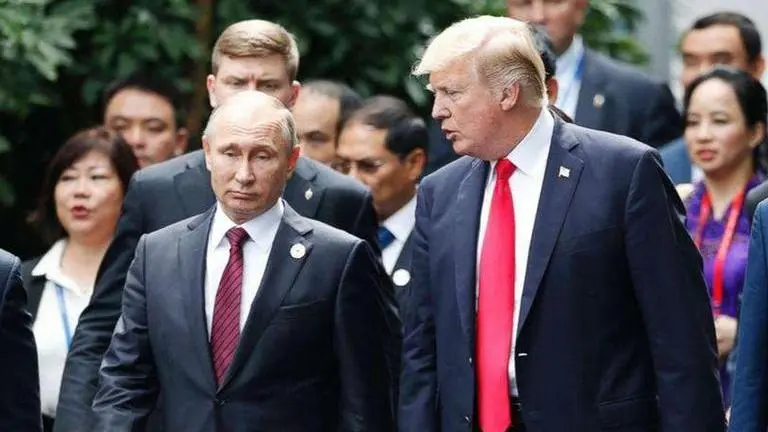Updated 20 October 2020 at 18:06 IST
Russia offers US one year freeze in number of nuclear warheads on 'no additional demand'
Russian authorities on October 20 said that they were ready to offer the US a mutual one year freeze on a number of nuclear warheads owned by both countries.
- World News
- 2 min read

Russian authorities on October 20 said that they were ready to offer the US a mutual one year freeze on a number of nuclear warheads owned by both countries in order to extend an arms reduction deal. Russia’s bargain deal comes in less than a week after Trump administration rejected the Russian proposal of extending the START agreement, due to expire in February next year. However, Moscow pointed out that the “extra time” gained from the temporary freeze could be used to deliberate upon the future control of weapons.
"Russia offers to extend the New START by one year and is ready to take on a political commitment with the United States to freeze the number of nuclear warheads both sides have for this period," the foreign ministry said in a statement.
'No additional demands'
However, Moscow made it clear that the temporary suspension could only happen if America didn't have any “additional demands”. Earlier, Russia had offered to extend the treaty for five years without any conditions while the US administration was pushing for a new arms control agreement that would also include China. As per reports, Moscow described the idea of including China as unfeasible, pointing at Beijing’s refusal to negotiate any deal that would reduce its much-smaller nuclear arsenal.
Advertisement
The new Strategic Arms Reduction treaty or (START II) inked in 2010, caps the possession of nuclear warheads held by both Moscow and Washington. The agreement puts a limit on the number of strategic nuclear warheads such as submarine-launched ballistic missiles and intercontinental ballistic missiles. However, what has concerned the Trump administration is that it does not cover any other types of nuclear warheads. Signed by Former American President Barack Obama and his Russian counterpart Dmitry Medvedev, the treaty aimed at "resetting" relations between the former enemies. However, following the return of Vladimir Putin to power in 2012, they seem far to be normalising.
Image: robertcobrien/twitter
Advertisement
Published By : Riya Baibhawi
Published On: 20 October 2020 at 18:07 IST
